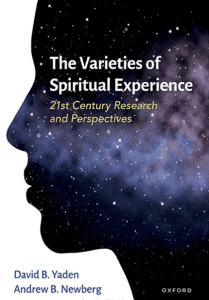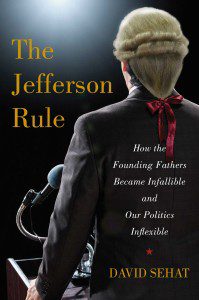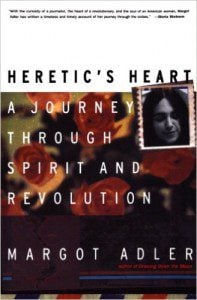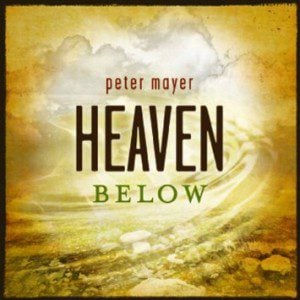One of my professors used to say that his favorite time of the year was the last week of each semester. He called it “A Time of Great Synthesis.” He said he could almost feel it in the air: the energy of students preparing for final papers and exams, striving to weave all the disparate strands of knowledge learned during the term into a coherent tapestry. At the time, I used to sometimes roll my eyes when he would say things like that because I was wearily in the midst of studying. At the same time, I knew he was right. Integration is hard work, but it’s essential for transforming mere data, facts, and information into wisdom.
And I tried in last week’s post on “Lost Christianities and Banned Books of the Bible,” to distill the core lessons from the 9 hours I have spent lecturing about that topic at Frederick Community College this fall. This week, I want to make a similar effort in regard to the 10-week class I have been facilitating this fall in my congregation on “Building Your Own Theology.” Before that class began, I posted back in early September on “Building Your Own Theology,” and this current post is a sequel of sorts more than two months later.
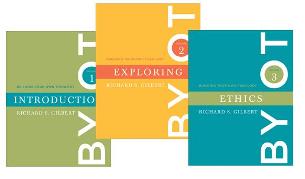 The goal of the “Building Your Own Theology” curriculum is to work on articulating what you believe (and why) in conversation both with other religious liberals as well as with theologians, philosophers, and other thinkers throughout history. And one goal of this post is to perhaps inspire readers of this blog to do some reflection and perhaps even some writing of your own about what you believe and why.
The goal of the “Building Your Own Theology” curriculum is to work on articulating what you believe (and why) in conversation both with other religious liberals as well as with theologians, philosophers, and other thinkers throughout history. And one goal of this post is to perhaps inspire readers of this blog to do some reflection and perhaps even some writing of your own about what you believe and why.
Accordingly, perhaps the most important point to make about building a twenty-first century progressive theology relates to what is known as the “Liberal Turn in Theology.” The Liberal Turn in theology is the move from a theology constrained by tradition, hierarchy, and community to a theology that views reason, feelings, and experience as equally legitimate sources for theological reflection. So instead of being expected to belief a doctrine or dogma because “it (allegedly) has always been that way,” because a religious leaders tell you so, or because “that’s what everyone else thinks,” liberal theology insists that human reason and logic as well as individual feelings and experiences — what you know to be true because you have experienced it in the crucible of your own firsthand experience — are centrally important in building a theology that has relevance and integrity.
And although the prospect of building your own theology can be liberating and exhilarating, the actual process of deconstructing obsolete beliefs and reconstructing a new framework for beliefs and practices is hard work. A “Do-It-Yourself” theology can be most worthwhile, but the challenge is (as the old saying goes) to ensure that the freedom liberalism gives us leaves us genuinely set free from the oppressive parts of our past and not just cast adrift.
I will offer, as a way of getting starting, the three questions that we invited all members of the Building Your Own Theology class to respond to in our first session:
What are some significant religious beliefs you cherish?
What are some significant religious beliefs from your personal history that you have rejected?
What are some religious issues with which you are currently struggling and would like to explore?
Those three questions alone can get you a long way into the process of building your own theology. I should perhaps also add that “building your own theology” is process that is potentially worth engaging at different points in your life — perhaps at least every decade or in the wake of major life changes.
In that spirit, I love the passage from poet Rainer Maria Rilke’s Letters to a Young Poet in which he offers these words of wisdom:
Do not now seek the answers which cannot be given you because you would not be able to live them. And the point is, to live everything. Live in the questions now. Perhaps you will gradually, without noticing it, live along some distant day into the answer.
I appreciate these word both because of the honesty that we will never have all the answers from our finite human perspective as well as the insistence on action not just abstract theories.
Accordingly, I will readily admit that I do not have all the answers, and I fully expect that my theology will evolve further as I continue to “live the questions.” Nevertheless, after facilitating ten sessions of Building Your Own Theology, I would like to share with you some of the cornerstones of my current credo, which is a work still under construction:
I believe that behavior is believable, often much more so than words.
I believe in cultivating firsthand religious experience, in exploring what we can know in the crucible of our own direct experience.
I believe that our talk about “the divine,” “the sacred,” or simply “reality” must be informed by the best of twenty-first century knowledge, not only the best of sources such as process, feminist, and liberation theologies, but also of quantum physics, Big History, and Deep Time.
I believe that there is no perfect past to which we can return because “Eden” never existed in the first place, but stories of exemplary lives and communities — as well as myths and archetypes — can still inspire us to live bolder, more beautiful, inclusive, and transformative lives.
I believe there is no single, perfect way to live in the present, but we can fine pragmatic touchstones at the intersection of tradition, reason, and experience.
I believe there is no perfect utopia ahead of us in the future, but that we can still freely choose love, solidarity, and hope. And in so doing can make a difference in this world, improving the lives of ourselves and others.
As I said, I don’t have all the answers, but those are some of ways I am currently living the questions.
In the closing session for the Building Your Own Theology class, one of the final reflection questions asked about the significance of the theology that we had spent the past few weeks articulating:
How does the theology you have built “interfere” with your life? (What difference does it make in the way you live? What are the main obstacles in living your convictions? What concrete steps might you take to bring your life into line with your theology? What will you do differently because of Building Your Own Theology?)
One of the ways my theology interferes with my life is that it calls me out of myself, and continually challenges me to join with others in making this world a better place for all people.
And although I do believe that building your own theology can be a constructive, helpful practice, ultimately Unitarian Universalism is a big tent movement that explicitly makes room for drawing from six diverse sources in shaping communal life together. And recognizing our theological diversity, we like to remind ourselves that, “You don’t have to believe alike to love alike.”
And despite the diverse theologies that we are continually building and re-building, we also emphasize that, in the end, our bias is on “Deeds not creeds”: on concrete actions of working for justice, standing on the side of love, and building the Beloved Community.
The Rev. Dr. Carl Gregg is a trained spiritual director, a D.Min. graduate of San Francisco Theological Seminary, and the minister of the Unitarian Universalist Congregation of Frederick, Maryland. Follow him on Facebook (facebook.com/carlgregg) and Twitter (@carlgregg).
Learn more about Unitarian Universalism:
http://www.uua.org/beliefs/principles



